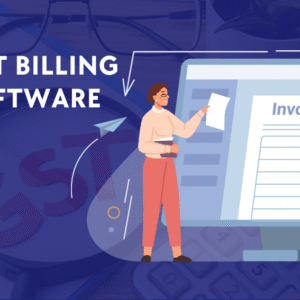Ethereum is the world’s second most famous cryptocurrency, doubled as a blockchain platform. The Ethereum blockchain technology is popular among investors and developers because of its smart contracts. The cryptocurrency has experienced massive growth, from $ 11 in 2016 to $2321.61in February 2024.
Considering the humongous growth margins within the short timeframe, people are buying the cryptocurrency in numbers. Storing and transacting in Ethereum requires a medium, and that’s where Ethereum wallets come in. The article below will uncover the secrets to finding the best Ethereum wallets to meet your investment needs.
1. The Type of Wallets
Ethereum wallets are available in many forms, configured for users with unique preferences. The best Ethereum wallet keeps your keys secure and enables seamless transactions. Desktop wallets run on computers, while mobile wallets run on hand-held devices. Online wallets are accessible via web browsers, most of which have browser type and version limitations.
Hardware wallets are secure physical devices such as Trezor and Ledger Nano. Paper wallets are physical documents containing private and public key details. Cold wallets offer advanced protection against online threats. Token-specific wallets are specifically for specific tokens.
2. The Security Features
Wallets for storing Ethereum have a diverse range of security features. Encryption systems lock the keys and prevent unauthorized access. These are a series of words working as backup and enabling you to regenerate your wallet. Two-factor authentication adds a solid layer of protection against cyberattacks.
Biometric authentication is one of the most integral security features for protecting your Ethereum wallets. These come in the form of face recognition and fingerprints. Hierarchical deterministic lets you generate new public addresses for every transaction, enhancing security and privacy. Multi-signature support minimizes unauthorized access to your wallet and Ethereum.
Password protection offers an additional protection layer and keeps cybercriminals at bay. Also, you can use a secure enclave to prevent hacking attempts and keep your Ethereum keys secure.
3. Ease of Use and User Interface
The user interface and user-friendliness of the Ethereum wallet are crucial considerations. Look for a wallet with a user-friendly interface to enjoy fast navigation and straightforward transactions. The wallet should offer accurate and efficient transaction history with clear records. Some Ethereum wallets have interfaces supporting seamless and fast sending and receiving of Ethereum.
The wallet should be compatible with your system’s operating system for seamless transactions. It should also allow quick access to functions such as balance checking and Ethereum sending and receiving. The token management system is another consideration, and it should allow you to manage multiple assets. Finally, consider the quality of customer support and the languages supported.
4. The Ethereum Wallet Features
Ethereum wallets have diverse crucial features to streamline transactions and asset management. Start with checking the key management system and confirm its effectiveness. The wallet should have an efficient address generator. Ensure the balance monitoring system allows for seamless ERC-20 tokens and Ether monitoring. You should have the lenience to view transactions and monitor all activities.
Wallets for Ethereum should be compatible with most token standards and allow interactions with Ethereum smart contracts. Look for wallets integrated with backup and recovery systems to prevent data loss. Wallets from different providers support varied networks. Choose ones supporting basic Ethereum testbeds and main net plus custom networks.
5. Quality of Community Support
Every Ethereum wallet ecosystem needs robust community support. Choose wallets with a vibrant developer community, offering needed improvements and updates. The platform needs to have active social media platforms and dedicated forums. These platforms allow users to engage in discussions concerning Ethereum and the wallet.
Some wallets have multi-talented members that create comprehensive guides and documentation. Community events related to Ethereum keep members informed and help them to make better investment decisions. These include but are not limited to meetups, workshops, and hackathons. Online resources and tutorials allow people to learn more about Ethereum and investment opportunities.
Consider wallets with user support in your language. You should be able to contact help whenever you face technical issues.
6. DApps Compatibility
Check whether the wallet is compatible with DApps. Settle for top-tier wallets like MetaMask that integrate seamlessly with DApps. You will find mobile wallets such as Trust Wallet offering built-in DApp browsers, allowing you to manage decentralized apps from your mobile device.
Target wallets compatible with DApps you use frequently. The wallet should provide a user-friendly interface for optimized decentralized app usage and support Web3 to facilitate seamless communication between decentralized apps and the wallet.
Wrapping Up
Ethereum wallets keep advancing every other day, introducing new systems each day. Every crypto investor has specific expectations in a crypto wallet and would do everything to get the best. Many features and qualities define the ideal Ethereum wallet, but the ones mentioned above will direct you to identify the best solution.
DApps-compatible wallets are the best for users who deal with decentralized apps. The quality of customer support, user-friendliness, and security features are important considerations. Ethereum wallets need robust security systems to protect against cybercriminals. Compare the many wallet types to pick ones that match your unique investment needs.






